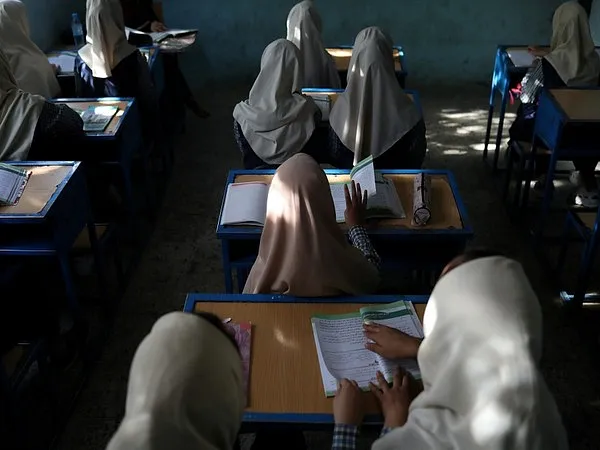Several human rights and education activists urged world leaders in an open letter recently to mount diplomatic pressure on the Taliban to reopen secondary schools for girls in the war-torn country as the Taliban’s brutal regime in Afghanistan will soon complete a year in August.
Young girls and women have been compromising with their aspirations as it has been almost 300 days since their development has been distorted, the activists said adding, that if this situation persists, their aims and hopes will suffer greatly, reported Khaama Press.
World leaders, regional allies, and international organizations were urged in the letter to take serious actions to fulfil their commitments in order to promote and protect Afghan girls’ rights, especially the right to education which was snatched away from them after the Taliban-led Afghan government banned the education for girls in classes 6 and above.
Notably, the letter calls for solemn actions beyond a “declaration of solidarity” and only condemning the Taliban, demanding immediate financial assistance for Afghanistan’s educational system.
The letter also calls for funding for human rights organizations and the installation of alternative systems for girls’ education in Afghanistan.
“Although such actions (condemning and sharing sympathies) are done with good intentions, it appears that it does not make the Taliban accountable for ensuring the rights of women and girls,” the letter read.
Taliban has imposed draconian restrictions on the rights to freedom of expression, association, assembly and movement for women and girls.
The Taliban’s decision to ban female students above grade six from going to school has drawn widespread criticism at the national and international levels. Further, the Taliban regime which took over Kabul in August last year has curtailed women’s rights and freedoms, with women largely excluded from the workforce due to the economic crisis and restrictions.
As a result of this, women and girls in Afghanistan are facing a human rights crisis, deprived of the fundamental rights to non-discrimination, education, work, public participation and health. Afghan women are staring at a bleak future due to a number of restrictions imposed by the Taliban governing aspects of their lives within 10 months of Afghanistan’s takeover.
According to HRW, women and girls are blocked from accessing health care as well. Reports suggest that women and girls facing violence have no escape route. Allowing girls into schools and other educational institutes has been one of the main demands of the international community.
The majority of countries have refused to formally recognize the Taliban amid worries over their treatment of girls and women and other human rights issues.
Women are no longer allowed to travel unless accompanied by men related to them and are being curtailed from wearing make-up as well as their reproductive rights.

